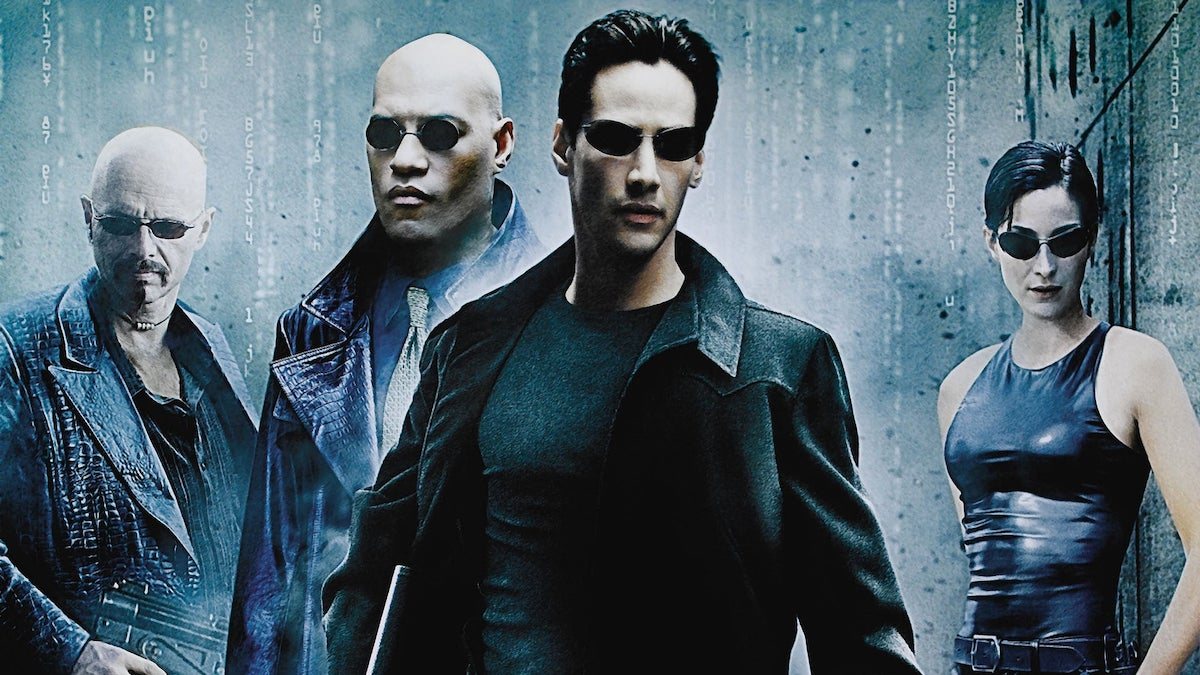The Matrix – The Wachowskis (1999)

“The Matrix,” released in 1999 and directed by the Wachowskis (Lana and Lilly), is a groundbreaking science fiction film that has left an indelible mark on cinema and popular culture. Known for its innovative storytelling, mind-bending visual effects, and philosophical themes, the film continues to captivate audiences with its exploration of reality, identity, and the nature of existence.

The plot of “The Matrix” unfolds in a dystopian future where humanity is unknowingly imprisoned in a simulated reality created by intelligent machines. The protagonist, Neo (played by Keanu Reeves), a computer hacker living a double life as Thomas Anderson, discovers the truth about the Matrix—a vast virtual world designed to control human minds and harvest their energy. Guided by the mysterious rebel leader Morpheus (played by Laurence Fishburne), Neo embarks on a journey of self-discovery and rebellion against the machines that enslave humanity.
Central to the film’s success is its innovative concept and execution. The Wachowskis’ screenplay introduces viewers to a universe where perception and reality blur, challenging conventional notions of what is real and what is simulated. The iconic “red pill, blue pill” scene, where Neo confronts the choice between awakening to the harsh truth of the Matrix or remaining in blissful ignorance, has become emblematic of the film’s exploration of existential themes.

Visually, “The Matrix” revolutionized filmmaking with its use of “bullet time” photography, which allowed for scenes where time appears to slow down while the camera moves around the action at normal speed. This technique, coupled with groundbreaking visual effects that seamlessly blended martial arts choreography with digital environments, created a cinematic experience unlike anything seen before.
Keanu Reeves’s portrayal of Neo resonated with audiences, capturing the character’s journey from skepticism and uncertainty to becoming the prophesied “One” who has the power to manipulate the Matrix itself. Laurence Fishburne’s Morpheus exudes wisdom and determination, serving as Neo’s mentor and guide in the fight against the machines. Carrie-Anne Moss’s portrayal of Trinity, a fearless member of Morpheus’s crew, adds depth and complexity to the ensemble cast, showcasing her skills as both a warrior and a confidante to Neo.

Thematically, “The Matrix” delves into profound philosophical questions about free will, destiny, and the nature of reality. Drawing inspiration from various philosophical and religious traditions, including Plato’s Allegory of the Cave and Eastern spirituality, the film invites viewers to question their own perceptions and contemplate the possibility of a deeper reality beyond what is immediately apparent.
The film’s narrative is propelled by a series of adrenaline-pumping action sequences that combine martial arts prowess with cutting-edge special effects. From Neo’s training in the simulated dojo to the climactic showdown against Agent Smith (played by Hugo Weaving), a formidable program within the Matrix, each action set piece contributes to the film’s narrative tension and thematic exploration.

“The Matrix” received widespread critical acclaim upon its release, praised for its originality, visual inventiveness, and thought-provoking themes. It won four Academy Awards and spawned a franchise that includes two sequels, “The Matrix Reloaded” and “The Matrix Revolutions,” as well as spin-off media exploring the expanded universe.
In conclusion, “The Matrix” stands as a landmark achievement in science fiction cinema, pushing the boundaries of visual storytelling and narrative complexity. The Wachowskis’ visionary direction, coupled with Keanu Reeves’s iconic performance and groundbreaking visual effects, created a film that continues to inspire and challenge audiences to question the nature of reality and their place within it.











